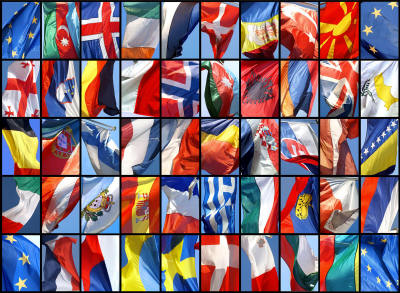Part I of this essay related how Mario Goijman, the former president of the Argentinean Volleyball Federation, found himself being evicted from his home as a consequence of an unaccountable international sport association. Part II picks up the story and its broader implications...
Goijman’s personal experiences illustrate what can be the seamy underside of the governance of international sports organizations. More than 60 such organizations are incorporated in Switzerland where they largely enjoy freedom from oversight and lax financial requirements. Among these bodies, it has been FIFA -- which oversees international soccer and its wildly successful World Cup -- that has faced the most visible issues with corruption, with a prominent (and largely panned) report issued by a FIFA reform committee last week.
At the Play the Game conference last fall award-winning British investigative journalist Andrew Jennings suggested that the mafia is an apt comparison to how FIFA operates, a comparison which a FIFA spokesman at the conference rejected, asserting that the mafia “kills people.”
Other federations have faced similar allegations. Last month Mario Vazquez Raña, a long-time member of the International Olympic Committee and president of the Association of National Olympic Committees, resigned in dramatic fashion, citing “shady alliances and questionable procedures.”
Corruption in sports governance is bad enough in the context of sport, but has potentially far greater consequences than simply on the games themselves. Unfortunately, allegations of the consequences of poor sports governance are not simply financial, and can take a human toll.
For instance, human rights attorney and former Olympic swimmer for Canada, Nikki Dryden, has complained that following the 2010 drowning death of Fran Crippen, an American open-water swimmer, at an event in the United Arab Emirates that the international swimming federation “refused to participate with the USA Swimming Task Force to help with a thorough, transparent investigation” despite what may have been excessively warm waters and a possible shortage of lifeguards.
In another case with even broader consequences, in February Jack Warner, the Trinidad and Tobago government official who was recently expelled from the FIFA Executive Committee for ethical violations, stood accused of mismanaging funds that had been raised to aid those suffering in the aftermath of the 2010 Haiti earthquake. According to the Sunday Times in London, Warner collected $750,000 from FIFA and its vice-president Moon Jung-Chung (who is also part of the South Korean Hyundai family). The President of the Natian football association Yves Jean-Bart says that only $60,000 reached Haiti. Warner has not yet accounted for the remaining funds.
The United States and Europe are familiar with oversight of governmental and non-governmental bodies to root out and clean up corruption. Yet, such practices are far from universal. In a recent report the Council of Europe noted that only 10 countries around the world have laws against bribery in sports, and noted that even within Europe a complex tapestry of laws and enforcement makes dealing with corruption a challenge.
In the late 1990s, when it was revealed that US Olympic organizers had given bribes to IOC members in order to secure the 2002 Winter Games for Salt Lake City, the US media, Department of Justice and Congress all went to work. Following a congressional investigation led by Senator George Mitchell, Representative Henry Waxman introduced a bill which would have prevented American companies from financially supporting the IOC until it had implemented their recommended reforms. The bill never became law but the threat was enough to motivate the IOC to begin a process of reform. Yet, once the hot glare of the US media and policy makers turned away from the IOC, reform stalled.
When the police showed up at his house last month he put a gun to his head to attempt suicide and had to be hospitalized. Andersen at Play the Game (pictured below) has asked the FIVB to enter into a process of arbitration to resolve the outstanding dispute over the 2002 loans still held in Goijman’s name, explaining that “By showing generosity and willingness to open a dialogue with the [Argentinean Volleyball Federation] and Goijman the FIVB will send an important welcoming signal to those future leaders inside and outside volleyball who wish to preserve the integrity of sport and its institutions.” Andersen tells me that Goijman has now been evicted from his home, and now lives in a small rented house.
Beal at USA Volleyball made his position clear when we spoke. He said that the $800,000 owed by Goijman “may sound like a lot” but is “not too much to the FIVB.” Andersen is leading an EU-funded project that is seeking to document the financial accounts of international sport associations. With respect to volleyball he says that "The FIVB does not publish its annual accounts but is widely believed to be among the most wealthy sports federations."
Beal cited the well-run and quite successful 2002 Men’s World Championships that Goijman pulled off in a difficult financial period for Argentina and its federation when he concluded, “My very strong opinion is that the FIVB should just pay this disputed amount, or some negotiated amount. It would clearly get rid of this stigma on our sport and send a positive message about supporting our world events and our long-time partners and do the right thing.”
The tragedy of Mario Goijman is yet another example of how, for far too long, international sporting organizations have been controlled by small groups of unaccountable men who operate from secretive organizations in Switzerland. It is time for the United States and Europe to take a far more proactive role in ensuring that the sense of fair play that is expected in the games that we play is also standard practice in how the games are governed.





No comments:
Post a Comment